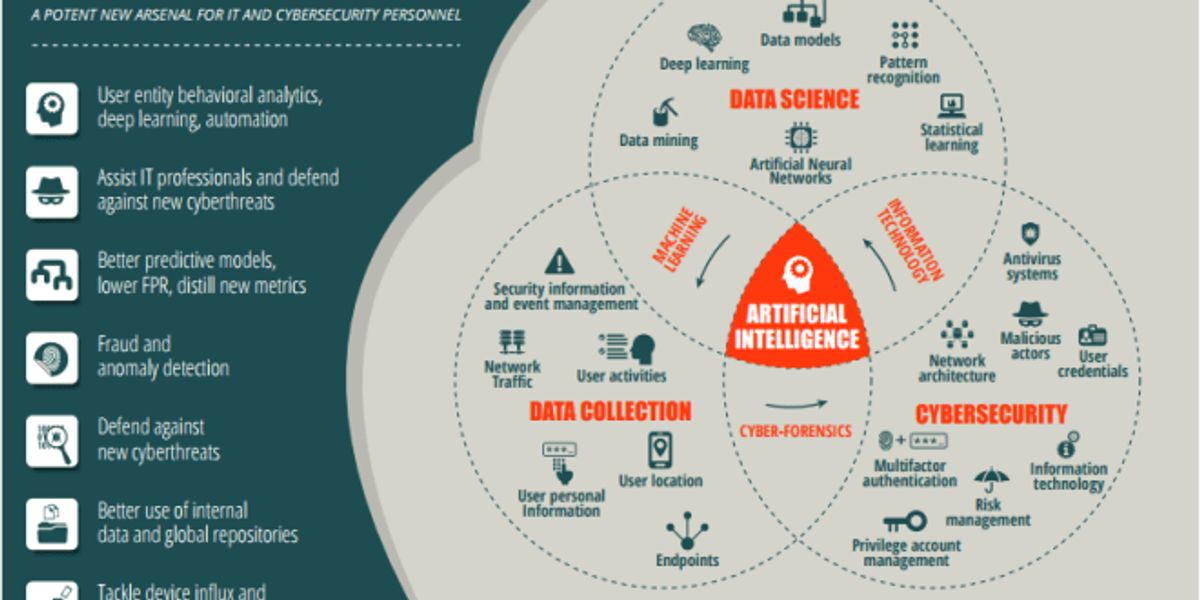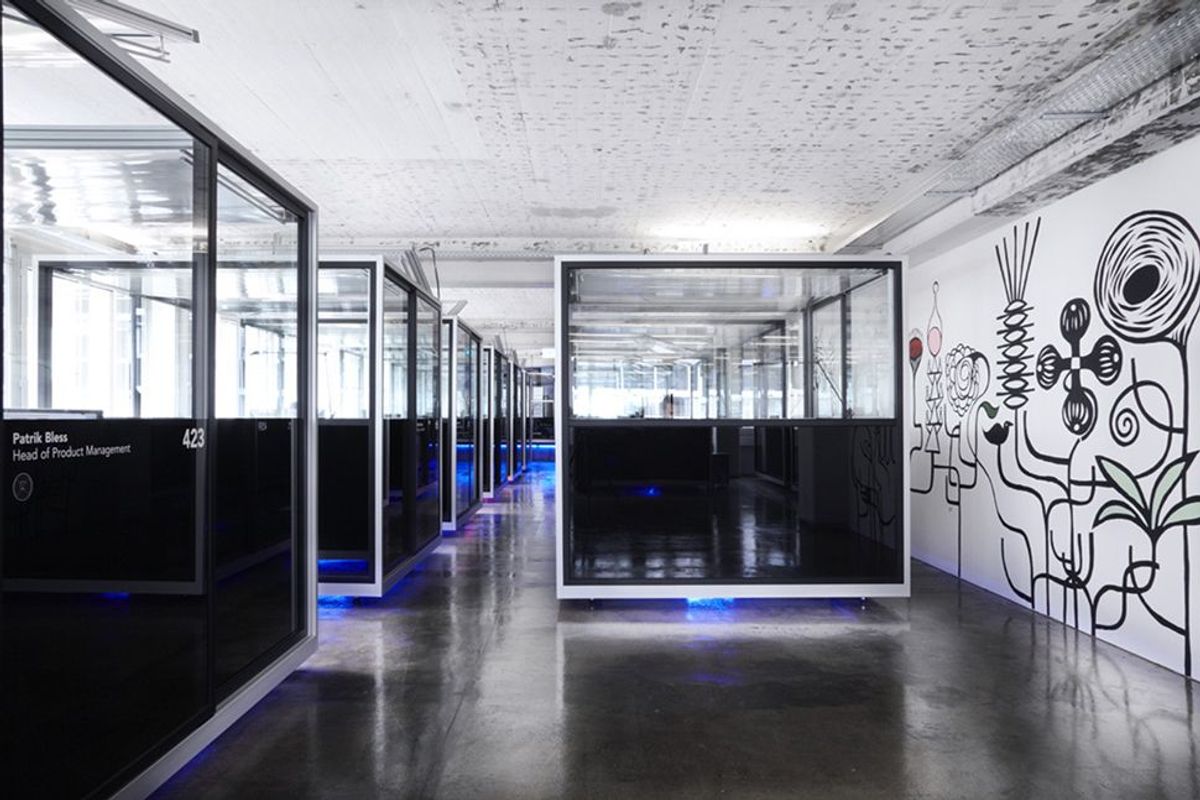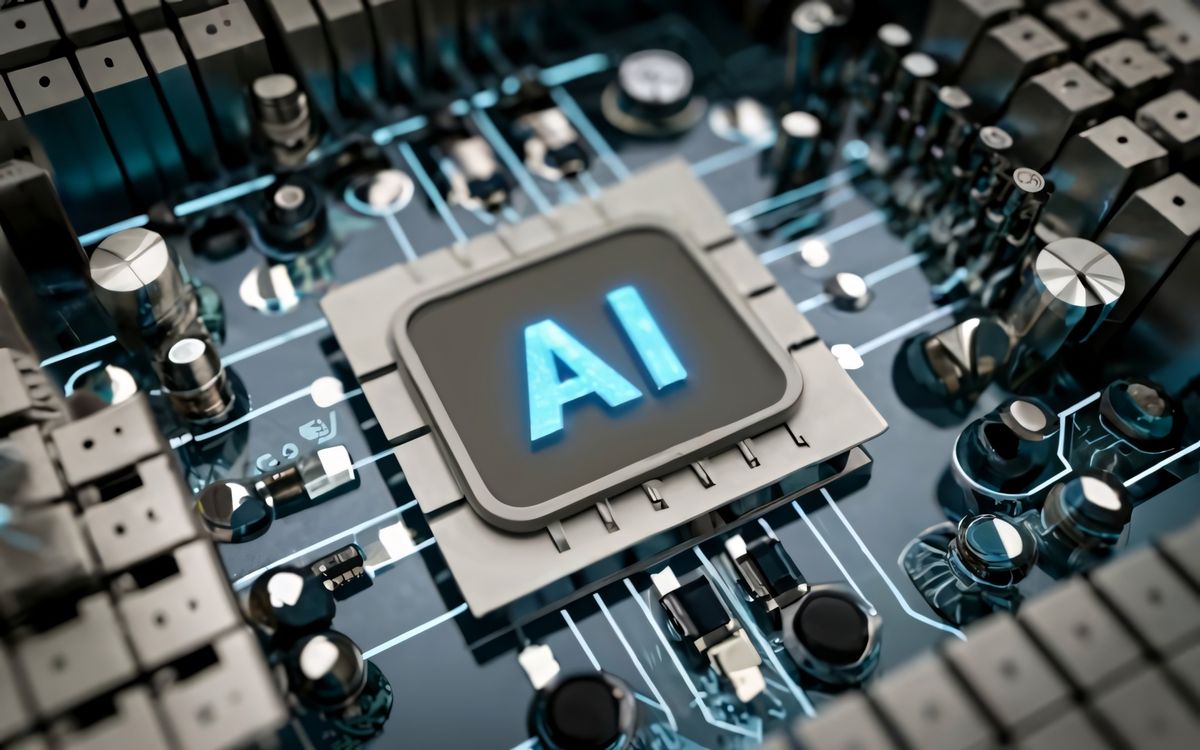In today's fast-paced business environment, artificial intelligence (AI) has become an essential tool for companies looking to gain a competitive edge. By integrating AI into various aspects of business operations, from HR to strategic scheduling, companies can optimize efficiency, improve decision-making, and set new industry benchmarks. This article explores the transformative power of AI in modern business practices and outlines why embracing AI is not just beneficial but necessary for success.
Key Takeaways
- AI-powered scheduling enhances business efficiency by optimizing workforce allocation, predicting demand, and enabling real-time shift adjustments.
- Integrating AI into HR processes revolutionizes talent acquisition, employee development, and performance analysis, driving strategic growth.
- Silicon Valley exemplifies the successful adoption of AI in business, setting new performance standards and maintaining a competitive advantage.
- Data-driven AI applications in market analysis and business decision-making are pivotal for companies to innovate and improve productivity.
- The future of business demands AI adoption; companies must prepare to leverage AI as a strategic asset for sustained market leadership.
Harnessing AI for Strategic Scheduling

Optimizing Workforce Allocation
In the realm of modern business operations, the strategic allocation of the workforce is not just about filling shifts; it's about placing the right people in the right roles at the right times. AI-powered scheduling systems are revolutionizing this aspect by analyzing vast amounts of data to identify optimal staffing levels for various scenarios.
AI's predictive capabilities enable businesses to anticipate staffing needs and adjust accordingly, ensuring that each employee's skills are utilized effectively while avoiding overstaffing or understaffing.
By leveraging historical data, AI can forecast peak periods and suggest the most efficient distribution of employees. This not only improves customer satisfaction by reducing wait times but also enhances employee satisfaction by creating more balanced workloads. The following list outlines the key benefits of AI in workforce allocation:
- Improved accuracy in predicting staffing needs
- Dynamic adjustment to staffing based on real-time data
- Enhanced employee satisfaction through equitable scheduling
- Cost savings from optimized labor utilization
Predictive Analytics for Demand Forecasting
In the realm of modern business, predictive analytics for demand forecasting is a cornerstone for strategic planning. By analyzing historical data, AI systems can estimate future customer demand with remarkable accuracy. This process is essential for analyzing market trends and enhancing productivity.
The benefits of predictive analytics are manifold, including:
- Improved inventory management
- Optimized resource allocation
- Enhanced customer satisfaction through better product availability
- Reduced waste and increased operational efficiency
Embracing AI for future success is not just an option but a necessity for businesses aiming to maintain a competitive edge. The integration of AI in demand forecasting allows for a more agile and informed approach to market fluctuations.
AI tools like Grok-1.5 and Natural-SQL-7B are revolutionizing the way businesses handle data analysis and strategic insights. With the ability to integrate with various data sources, these tools offer automation, pattern recognition, and operational optimization, though challenges such as processing unstructured data and the need for high computing power remain.
Automated Shift Planning and Real-time Adjustments
In the fast-paced business environment, automated shift planning has become a cornerstone for operational efficiency. AI-powered scheduling systems can analyze historical data, predict staffing needs, and generate optimal shift patterns without human intervention. This not only saves time but also reduces the likelihood of human error.
- Real-time adjustments to shift schedules are now possible with AI's predictive capabilities. Unexpected changes in demand or staff availability can be swiftly accommodated, ensuring that businesses remain agile and customer service is uninterrupted.
The integration of AI in shift planning allows managers to focus on higher-level strategic tasks, fostering a more dynamic and responsive workforce.
The table below illustrates the impact of AI on shift planning efficiency:
By leveraging AI for shift planning, businesses can achieve a significant competitive edge, enhancing their ability to adapt to market demands and improving overall workforce morale.
AI Integration in HR: A Game Changer

Enhanced Candidate Acquisition
The advent of AI in recruitment has revolutionized the way businesses attract top talent. Bid farewell to archaic resume-sifting practices. AI-powered recruitment platforms scan resumes with remarkable precision, identify high-potential talent, and can even automate interview scheduling, freeing your HR team to focus on strategic talent acquisition initiatives. These platforms not only streamline the hiring process but also pave the way for more equitable hiring practices by reducing the potential for bias.
AI-driven recruitment tools, when configured correctly, can help eliminate many of the common bias issues that occur with human-led application reviews, ensuring a more diverse and inclusive workforce.
AI doesn't stop at the initial acquisition; it extends its capabilities to enhance the entire recruitment journey. From formulating tailored behavioral interview questions to generating personalized offer letters, AI algorithms are transforming the interview process to be more efficient and candidate-focused. The result is a seamless integration of technology that not only attracts candidates but also provides them with a unique and engaging experience from the very first interaction.
Personalized Employee Development Plans
In the era of AI, personalized employee development plans are revolutionizing how businesses invest in their workforce. AI-driven systems analyze individual performance data and learning preferences to create tailored growth paths for each employee. This not only enhances the employee experience but also aligns personal aspirations with organizational goals.
- Dynamic onboarding modules for new hires
- Proactive support and roadblock anticipation
- Customized learning and development resources
By leveraging AI, companies can ensure that their employees are continuously growing and adapting in a fast-paced business environment, fostering a culture of continuous improvement and innovation.
Real-time engagement tools powered by AI sentiment analysis provide a pulse on workforce morale, enabling timely interventions and a more cohesive, engaged team. Targeted communication strategies, facilitated by AI, ensure that every piece of information is relevant and impactful, contributing to a well-informed and connected workforce.
AI-Driven Performance Analysis
In the realm of performance management, AI is revolutionizing how businesses evaluate and enhance their workforce's productivity. AI algorithms sift through vast amounts of performance data, offering insights that were previously unattainable. This data-driven approach empowers companies to proactively identify areas for improvement, optimize communication strategies, and foster a positive work environment.
AI-driven performance analysis tools are not just about monitoring; they are about transforming data into actionable strategies that drive success.
For instance, AI-powered gap analysis tools assess operations, pinpoint areas for improvement, and provide data-driven recommendations for optimization. Here's how AI applications are making a difference in HR success:
- GAP FINDER: Identifying internal inefficiencies and performance gaps.
- PATTERN PATHFINDER: Uncovering hidden patterns and forecasting future outcomes.
- CODING CHAMPION: Assisting in coding tasks with AI-powered coding assistants.
By integrating these tools, businesses can not only track but also predict and enhance employee performance, leading to a more dynamic and competitive organization.
Silicon Valley's AI Edge: Mastering AI Business Strategies

AI Sets New Benchmarks in Business
The integration of AI into business practices is no longer a novelty but a critical necessity. It's setting new standards in efficiency and decision-making, reshaping industries by making businesses smarter, faster, and more efficient. This transformative power of AI is evident across various sectors, from optimizing supply chains to personalizing customer experiences.
AI isn't just a tool; it's a game-changer that's reshaping how industries operate.
Silicon Valley, known for its cutting-edge technology, is leveraging AI to push the boundaries of what's possible in business. The region's companies are not just using AI; they are setting new benchmarks for business excellence that others strive to meet. Here's a glimpse into how AI is elevating business capabilities:
- Optimizing supply chains: Enhancing efficiency and reducing costs.
- Personalizing customer experiences: Tailoring services to individual needs.
- Enhancing data security: Protecting against cyber threats.
- Analyzing vast amounts of data: Gaining strategic insights for informed decision-making.
Embracing AI is becoming a necessity for future success, as it permeates every aspect of professional life, from automating mundane tasks to driving business innovation.
Importance of AI Integration
The importance of AI integration in business strategies cannot be overstated. AI's role in revolutionizing industries is pivotal, as it enables companies to analyze market trends, enhance decision-making processes, and adapt to changes with agility. This integration is transitioning from a novel approach to a critical necessity, setting new standards in efficiency and decision-making.
Moreover, AI's ability to learn and evolve is transforming every system it touches, making them smarter, faster, and more efficient. By automating tasks and enhancing precision, AI is not only boosting productivity but also driving profitability. It's the reason why literature on AI often urges readers to understand and embrace this transformative technology.
AI technology promises significant benefits for businesses, including improved customer engagement, data analysis, automation of processes, and strategic planning. It's why businesses that integrate AI are often seen as more competitive and innovative.
AI as Silicon Valley's Secret Weapon
Silicon Valley has long been synonymous with innovation, but its current ace up the sleeve is undoubtedly artificial intelligence (AI). This region, known for setting trends, is now using AI to redefine the very nature of competitive business strategies. From enhancing trading platforms to optimizing supply chains, AI is the linchpin in creating smarter, faster, and more efficient operations.
The transformative power of AI in Silicon Valley is not just about staying ahead; it's about continually pushing the boundaries of what's possible. Here, AI is not merely a tool but a foundational element that permeates every aspect of business, driving growth and innovation at an unprecedented pace.
- Revolutionizing Industries: AI's impact is evident across various sectors, making it a universal game changer.
- Predictive Analytics: Transforming how businesses anticipate market trends and consumer needs.
- Automated Decision-Making: Enhancing the speed and accuracy of business decisions.
Embracing AI is essential for any business aiming to lead in its field. In Silicon Valley, it's clear that the mastery of AI is not just a competitive advantage but a necessity for setting new industry standards and achieving market leadership.
AI-Powered Decision-Making for Competitive Advantage

Data-Driven Market Trend Analysis
In the realm of competitive business, data-driven market trend analysis is pivotal. AI has revolutionized this domain by providing tools that can sift through vast datasets, identifying patterns and insights that were previously inaccessible. This capability is essential for analyzing market trends and enhancing productivity.
Embracing AI for Future Success: To stay ahead, companies must embrace AI, leveraging its capabilities for data analysis and insight generation, which are instrumental in making informed decisions.
For instance, the trading industry has been completely revamped by AI. Algorithms now predict market trends with astonishing accuracy, enabling traders to make informed decisions faster than ever before. This isn't just about making profits; it's about setting new standards and practices that redefine the industry.
Here's how AI is transforming market trend analysis:
- Unlocking the Potential of EmergentMind: Key considerations for success in trading.
- Market Research: AI's analysis of market data informs strategic business decisions.
- Public Relations Powerhouse: Leveraging AI for market insights and strategic communication.
Automating Complex Business Decisions
In the fast-paced world of modern business, automating complex business decisions has become a cornerstone for companies aiming to stay ahead. AI systems are now capable of analyzing vast datasets, identifying patterns, and making informed decisions at a speed and accuracy that surpass human capabilities. This shift towards AI-driven decision-making is not just about efficiency; it's about redefining the very nature of how businesses operate.
The integration of AI into business strategies extends beyond routine task automation. It encompasses the enhancement of precision in decision-making, leading to increased productivity and profitability. The evolution of AI means that with each decision, systems become smarter and more adept at navigating the complexities of the business world.
- AI-driven applications predict market movements
- Intelligent systems automate decision-making processes
- AI evolves with each application, enhancing system intelligence
By focusing on strategic and innovative activities, businesses can optimize the application of AI for informed decision-making and proactive business strategies, thus re-imagining business workflows.
AI in Enhancing Productivity and Innovation
In the quest for market dominance, AI is pivotal in driving productivity and fostering innovation. By automating routine tasks, AI liberates human talent to concentrate on strategic and innovative activities, thereby enhancing the application of AI for informed decision-making and proactive business strategies.
- AI automates mundane tasks, freeing up time for creative and strategic work.
- It provides insights for informed decision-making, optimizing business strategies.
- AI accelerates innovation by enabling rapid prototyping and testing.
Embracing AI is not just a choice but a strategic imperative for staying ahead in the competitive market. It is the key to leveraging AI effectively for setting new standards for innovation and productivity.
The transformative impact of AI on businesses is undeniable. It is making them smarter, faster, and more efficient. As we integrate AI into our business practices, we transition from novel approaches to critical necessities, setting new benchmarks in efficiency and decision-making. The integration of AI is essential for businesses to remain competitive and innovative, analyzing market trends and enhancing productivity.
The Future of Business: Embracing AI for Success

Preparing for AI as a Strategic Asset
As businesses venture into the future, preparing for AI as a strategic asset is crucial for maintaining a competitive edge. The integration of AI into business operations is not just about adopting new technology; it's about reshaping the entire organizational approach to growth and innovation.
- Strategic Planning: AI's predictive capabilities enhance long-term business strategies.
- Operational Efficiency: Streamlining processes through automation leads to significant cost savings.
- Customer Experience: Leveraging AI to understand and anticipate customer needs improves service and loyalty.
- Innovation: AI fosters an environment conducive to continuous improvement and breakthroughs.
Embracing AI requires a mindset shift, where technology is not seen as a mere tool but as a partner in the journey towards excellence and market leadership. The transformative power of AI lies in its ability to augment human capabilities and redefine the boundaries of what is possible in business.
The journey towards AI readiness involves a series of strategic steps, including workforce education, data infrastructure development, and the establishment of ethical guidelines for AI use. By taking these proactive measures, companies can ensure they are not only equipped to implement AI solutions but also poised to harness their full potential.
Practical Applications of AI in Business Operations
The integration of AI into business operations is a transformative force across various sectors. AI's ability to automate tasks and enhance precision is not just about efficiency; it's about reshaping the very fabric of how businesses operate. From automating mundane tasks to providing strategic insights through data analysis, AI is a cornerstone of modern business innovation.
- Streamlining customer service with chatbots and virtual assistants
- Enhancing supply chain management through predictive analytics
- Improving financial forecasting with machine learning algorithms
- Personalizing marketing campaigns using customer data insights
By harnessing the potential of AI, organizations can achieve enhanced performance and innovation, ensuring they stay ahead in the competitive market.
AI's evolution continues to make systems smarter and more efficient, setting new benchmarks in business. Embracing AI is not just a choice but a strategic imperative for market leadership and sustained success.
The Imperative of AI Adoption for Market Leadership
In the race for market leadership, AI adoption is not just a strategic move, but an imperative. Companies that harness AI's analytical prowess are setting new benchmarks, leaving competitors who fail to adapt at a significant disadvantage. AI's role in market trend analysis and decision-making is not just a trend; it's the cornerstone of future business success.
The integration of AI into business operations is a transformative journey that requires a clear vision and a commitment to innovation. It's about making AI a core part of the business DNA, ensuring that every decision is informed by data-driven insights.
To illustrate the importance of AI adoption, consider the following points:
- AI enables real-time market analysis, allowing businesses to anticipate changes and adapt swiftly.
- It empowers organizations to automate routine tasks, freeing up human talent for more strategic initiatives.
- AI-driven insights lead to more accurate forecasting, optimizing resource allocation and maximizing ROI.
The message is clear: to maintain a competitive edge and achieve market leadership, embracing AI is essential. It's not just about keeping up; it's about leading the way in innovation and strategic growth.
Conclusion: Embracing AI for Strategic Advantage
As we have explored throughout this article, the integration of AI into business scheduling and operations is not just a trend but a strategic imperative for modern enterprises. AI-powered scheduling tools offer unprecedented efficiency, accuracy, and adaptability, providing businesses with a competitive edge in a rapidly evolving market. By embracing AI, companies can unlock new levels of productivity and innovation, ensuring they not only keep pace with industry standards but set new benchmarks for success. For HR professionals and business strategists alike, the time to harness the transformative power of AI is now. It is an opportunity to reimagine workflows, enhance decision-making, and drive growth. As we move forward, those who leverage AI's full potential will lead the charge into a future of enhanced performance and strategic triumph.
Frequently Asked Questions
How does AI improve workforce allocation in businesses?
AI enhances workforce allocation by analyzing vast amounts of data to optimize staff distribution, predict staffing needs based on trends, and match employee skills with task requirements, leading to increased efficiency and productivity.
What role does predictive analytics play in demand forecasting?
Predictive analytics uses historical data, machine learning, and AI algorithms to predict future demand, enabling businesses to adjust their strategies proactively and manage resources more effectively.
Can AI automate shift planning and make real-time adjustments?
Yes, AI can automate shift planning by considering multiple variables, such as employee availability and skill sets, and can also make real-time adjustments in response to unforeseen changes, ensuring optimal staffing at all times.
How does AI integration in HR change the candidate acquisition process?
AI integration in HR revolutionizes candidate acquisition by automating resume screening, enhancing job matching through algorithms, and improving the overall recruitment process for both employers and job seekers.
In what ways can AI contribute to personalized employee development?
AI contributes to personalized employee development by analyzing individual performance data, identifying skill gaps, and recommending customized training programs to foster career growth and enhance job satisfaction.
Why is AI adoption considered imperative for maintaining market leadership?
AI adoption is imperative for market leadership because it enables businesses to process and analyze data at an unprecedented scale, drive innovation, make informed decisions, and stay ahead of rapidly evolving market trends.



